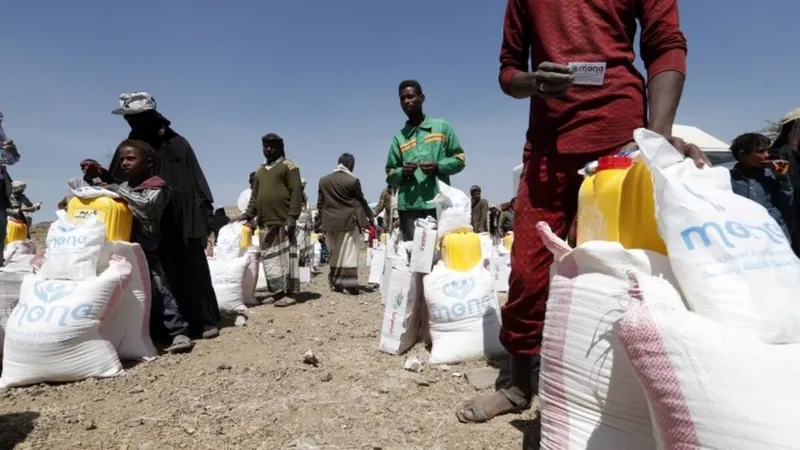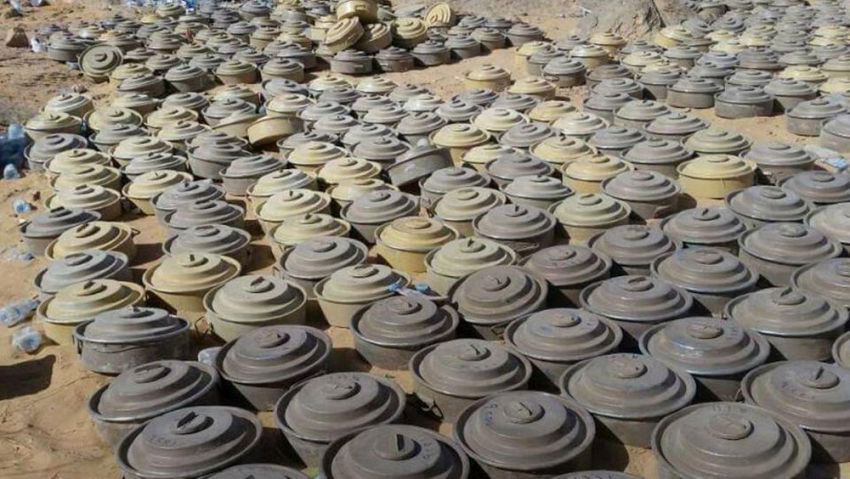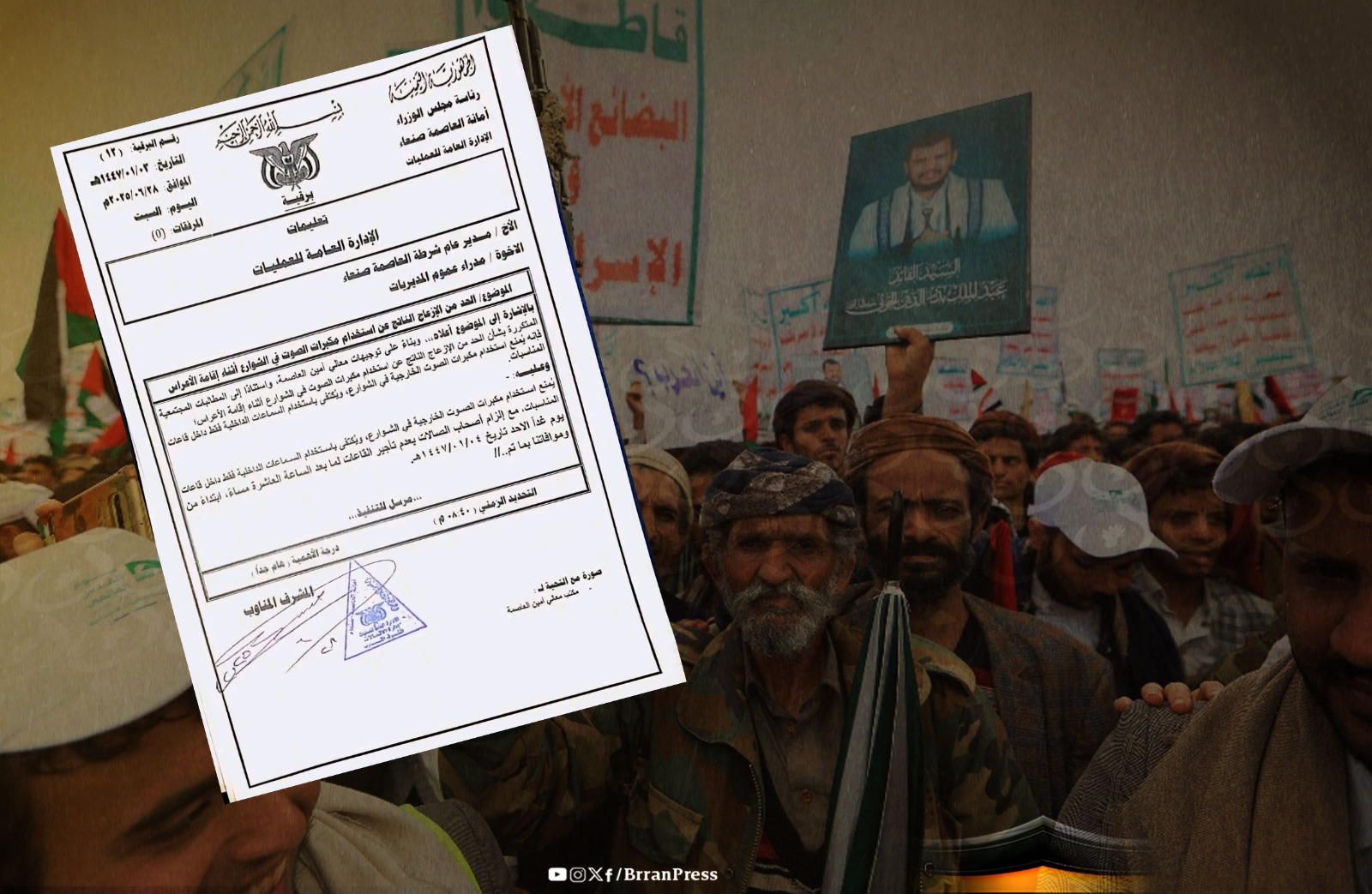
Barran Press
In a recent international report released by the "Combating Extremism Project (CEP)" and reported by "Barran Press," alarming revelations have surfaced regarding the Houthi group, an internationally recognized terrorist organization. The report exposes the establishment of a specialized body by the Houthis, aimed at looting aid destined for areas under their control. Shockingly, it highlights the lack of due diligence from relief organizations, which have failed to ensure that the aid reaches those in need.
The report brings to light the formation of the "Supreme Council for the Management and Coordination of Humanitarian Affairs and International Cooperation," a body established by the Houthis to regulate and control humanitarian efforts in their territories. The council, led by a prominent Houthi figure named Ahmed Hamed, assumes full authority over every aspect of humanitarian work within the group's jurisdiction.
Interestingly, the report describes Hamed, also known as "Abu Mahfouz," as a key figure in the Houthi movement, serving as both the director of the office of the so-called Supreme Political Council of the Houthis and the head of the aforementioned council tasked with managing aid. This dual role further solidifies his influence within the organization.
Notably, the report suggests that Hamed's recent absence from news updates and articles related to the Supreme Council for the Management and Coordination of Humanitarian Affairs raises suspicions of his removal from the position. Given Hamed's crucial role and proximity to Abdul-Malik al-Houthi, his potential removal would likely have significant repercussions within the Houthi movement, making it difficult to conceal from the public eye.
The report sheds light on the Houthis' exploitation of humanitarian aid, revealing that in 2019, they imposed a 2% tax on all aid entering their territories. This tax, supposedly intended to support the operational expenses of the Supreme Council for the Administration and Coordination of Humanitarian Affairs, raises concerns about the transparency of relief organizations involved.
Furthermore, the report uncovers financial arrangements between the United Nations (UN) and Houthi officials. The UN agencies allegedly provided substantial monthly salaries of $10,000 to the head of the Supreme Council for the Management and Coordination of Humanitarian Affairs, his deputy, and the directors-general. Additionally, the UN refugee agency granted the council $1 million every three months, covering office rental and administrative costs. The UN Migration Agency also allocated $200,000 for furniture and fiber optics for the council's office.
Upon learning of these arrangements, then-UN Resident Coordinator Lisa Grande expressed genuine shock, according to UN officials. Recognizing the gravity of the situation, Grande vowed to address the issue promptly, acknowledging the need to rectify the mismanagement.
The report concludes by highlighting the ongoing problem of diverting humanitarian assistance budgets to Houthi officials and organizations. It criticizes the lack of transparency exhibited by relief organizations in this regard. As evidence, the report cites a job advertisement for the role of UNICEF Communications Advisor, which states that all road access and landing permits for the movement of trucks and aircraft carrying UNICEF supplies must receive prior approval.
Additionally, the Houthi Council exercises authority over project implementation and the selection of local contractors permitted to engage with UN and international non-governmental organizations (INGOs), further deepening concerns regarding transparency and impartiality.
These revelations underscore the urgent need for increased oversight and transparency within relief organizations operating in Houthi-controlled areas. Swift action must be taken to rectify the systemic flaws and ensure that aid reaches those most in need, rather than being exploited by individuals and organizations with ulterior motives.
A recent UNICEF report has shed light on the extensive control exerted by the Supreme Council for the Management and Coordination of Humanitarian Affairs and International Cooperation, led by the Houthi group, over relief efforts in northern Yemen. The report states that UN organizations and international NGOs operating in the region are required to exclusively contract with vendors registered with the Supreme Council, thereby limiting sourcing options and competitive selection.
Despite concerns surrounding this practice, major humanitarian organizations have seemingly failed to resist the Houthi criteria imposed upon them. For instance, a tender published by UNICEF in October 2022 adopted the Houthi requirements, demanding bidders to submit all legal and registration documents, including registration with the Supreme Council for the Management and Coordination of Humanitarian Affairs (SCMCHA).
Similarly, the World Food Program issued a document resembling a Request for Information (RFI) in August 2023, stipulating that suppliers must possess a license from the Supreme Council to manage contracts with UN agencies in the north. This move by the World Food Program is part of its search for local contractors vetted by the Supreme Council for the Administration and Coordination of Humanitarian Affairs, who will conduct inspections and audits to prevent aid diversion by the Supreme Council and other Houthi-affiliated groups.
According to a PBS News report, the Houthis are also attempting to coerce the UN into working with their preferred NGOs, notably the organization known as Bonyan, which is heavily influenced by Houthi affiliates. Houthi leaders have even obstructed United Nations agencies from delivering food aid in Yemen's Hodeidah Governorate unless it is distributed through Bonyan's structure.
The project report highlights that the Bonyan Houthi Foundation is not a neutral humanitarian organization primarily focused on alleviating human suffering. It has been observed organizing events on behalf of the Houthis, including ceremonies honoring deceased individuals, and its international relations office is situated in Iran.
Furthermore, the Bonyan Foundation, linked to the Houthis, and an Iranian entity called Owais Qarni have entered into a strategic partnership agreement. Owais Qarni's website identifies it as the only "approved" channel for collecting and sending funds from Iran to the Houthis. While the English name of the organization implies voluntary humanitarian aid, its Persian name translates to "Owais Qarni Jihadi Group."
The report raises concerns about the potential funding of the Bonyan Academy, a business associated with the foundation, through international relief organizations. The academy is mentioned as an option for individuals seeking technical or vocational courses in a 2019 UNICEF report, and its website frequently emphasizes a focus on "sustainable development," which is not traditionally associated with Houthi ideology.
Moreover, the Supreme Council for the Administration and Coordination of Humanitarian Affairs and International Cooperation not only controls project approval and implementation but also strictly regulates the conduct of humanitarian workers in Yemen. The report highlights that the Houthi Council prohibits UN staff and NGOs from organizing or participating in any online/virtual studies, workshops, monitoring, and other activities without prior approval. This new regulation aims to reduce transparency and prevent the disclosure of information that could disrupt the intervention of the Supreme Council in the operations of humanitarian groups.





